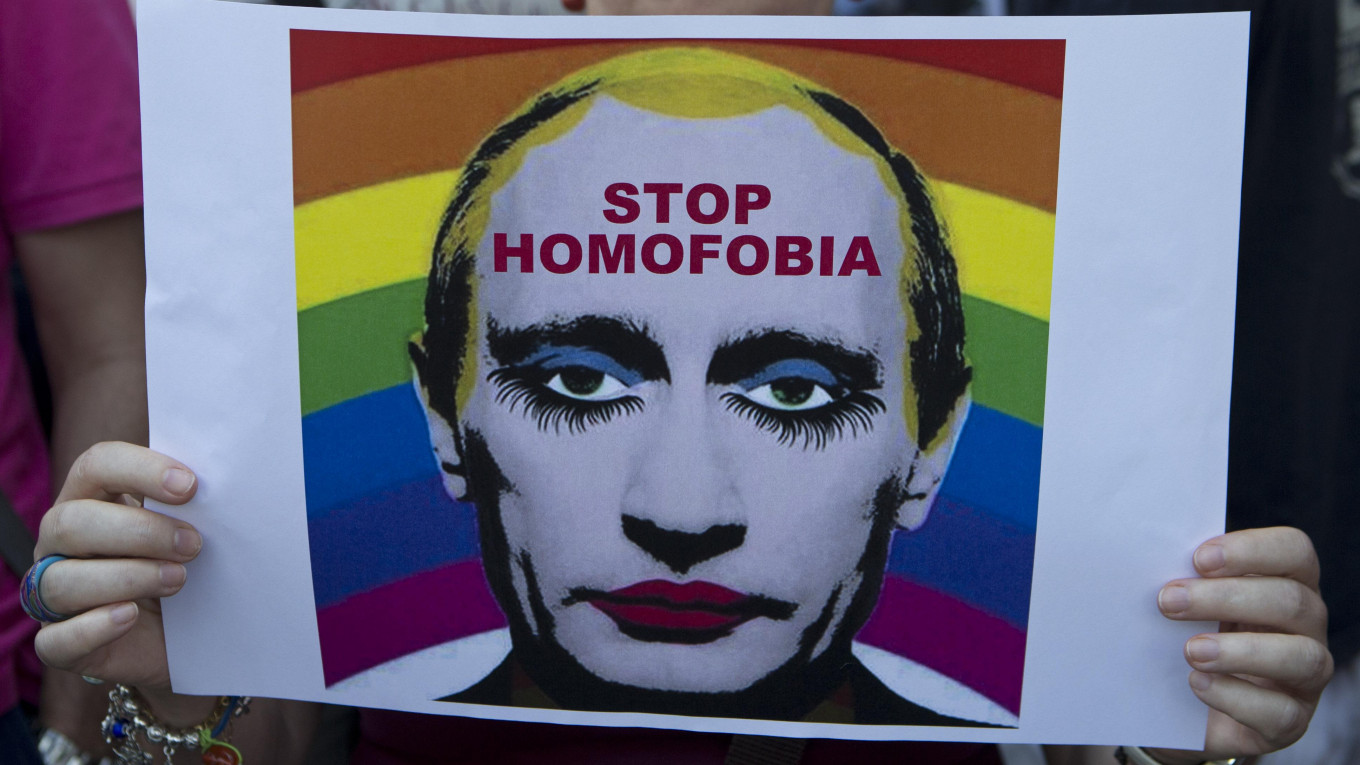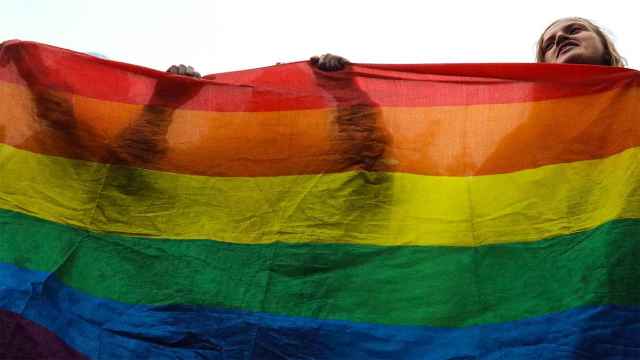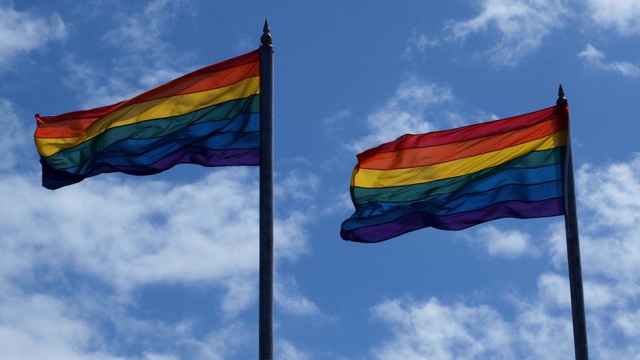Russia has banned an image showing Vladimir Putin in heavy makeup. In the photograph, Putin has red lips and painted eyelashes, and a suggestive caption reads, “They say there are many of them, but there aren't any among the people I know.”
Last week, the Justice Ministry formally added the image described above to its ever-expanding index of banned extremist materials. Officials have not provided a copy of the image, but it likely resembles the photo at the top of this story.
However it looks, the Putin photo occupies the 4,071th spot on a list that’s now 4,074 entries long.
The Justice Ministry acted in response to a verdict last year by the Central Regional Court of Tver, which on May 11, 2016, banned more than a dozen pictures uploaded to the social network Vkontakte by a man named A. V. Tsvetkov. According to the case materials, he shared these photos between June 2013 and October 2014.
Court records say the image showing Putin in makeup “hints at the Russian president’s allegedly nonstandard sexual orientation.”
The court also banned another image Tsvetkov uploaded to Vkontakte depicting Putin and Prime Minister Dmitry Medvedev in Nazi uniforms, alongside the head of the Russian Orthodox Church, Patriarch Kirill.
Other Vkontakte posts banned by the Tver court contained appeals to Russian police, encouraging them to turn on the government and join the country’s protesters. “Think it over, before it’s too late,” Tsvetkov's text threatened.
He also shared several blatantly racist images, including one photo that seemed to contradict the picture showing Putin and Medvedev as fascists: a poster bearing a swastika, with the caption, “Grandpa, forgive me! But it’s necessary!” Another photo encouraged readers to “beat up the cops first, and then move on to the [Asians] and [Jews].”
Tsvetkov didn’t appear in court, the day Judge Ludmila Perzhukova issued her ruling. According to the case materials, he was locked up in a local pretrial detention center. Over his objections, Judge Perzhukova decided to proceed with the trial in his absence, determining that he had ample time to review the case materials and send a representative to present any valid objections against the district attorney’s evidence.
In the end, the court released Tsvetkov from any criminal liability under Article 282 (Russia’s controversial ban on hate speech, which carries a five-year maximum prison sentence), and instead ordered him to receive compulsory psychiatric care.
After the trial, Tsvetkov got more bad news: Vkontakte deleted his account.
A Message from The Moscow Times:
Dear readers,
We are facing unprecedented challenges. Russia's Prosecutor General's Office has designated The Moscow Times as an "undesirable" organization, criminalizing our work and putting our staff at risk of prosecution. This follows our earlier unjust labeling as a "foreign agent."
These actions are direct attempts to silence independent journalism in Russia. The authorities claim our work "discredits the decisions of the Russian leadership." We see things differently: we strive to provide accurate, unbiased reporting on Russia.
We, the journalists of The Moscow Times, refuse to be silenced. But to continue our work, we need your help.
Your support, no matter how small, makes a world of difference. If you can, please support us monthly starting from just $2. It's quick to set up, and every contribution makes a significant impact.
By supporting The Moscow Times, you're defending open, independent journalism in the face of repression. Thank you for standing with us.
Remind me later.






